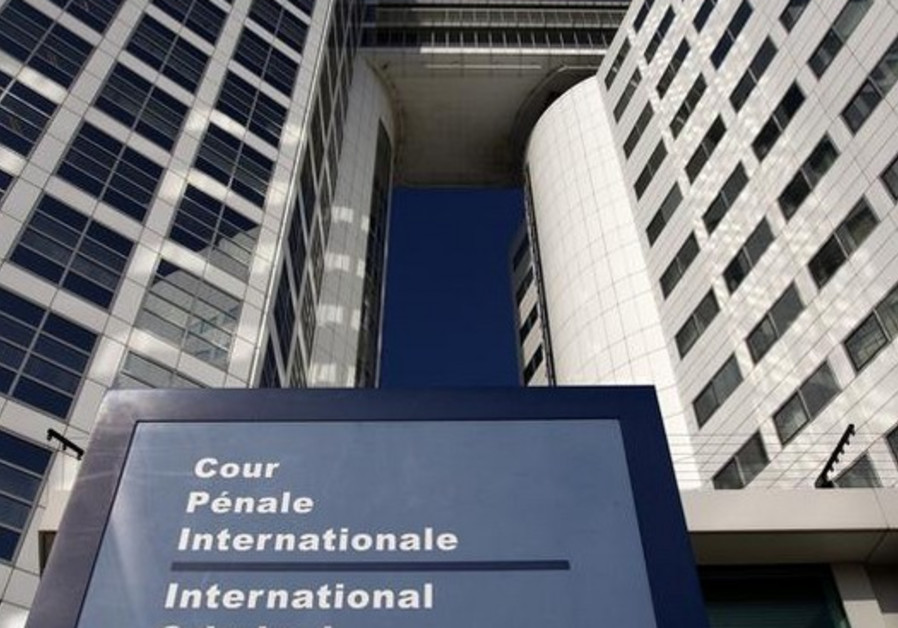What an ICC ‘war crimes’ probe could mean for Israel

The International Criminal Court in The Hague. (photo credit: REUTERS)
Amid a push by the Palestinian Authority for an expedited investigation into alleged Israeli “war crimes,” the chief prosecutor of the International Criminal Court (ICC) at The Hague indicated that a preliminary examination opened in 2015 “will continue to follow its normal course.”
Prosecutor Fatou Bensouda issued the statement after meeting with PA Foreign Minister Riyad al-Malki, who called for an urgent probe into Israel’s policies in the West Bank and Gaza Strip. The PA claims against Israel cover a wide array of issues, ranging from this month’s deadly clashes along the Gaza border to the 2014 war with Hamas; from Israeli housing projects in the West Bank to the IDF’s practice of demolishing the homes of Palestinian terrorists.
It is debatable, however, whether the ICC has legal jurisdiction to conduct any such investigation given that Israel is not a party to the Rome Statute, the court’s founding charter. For its part, the PA is not a full member of the United Nations, although the General Assembly in 2012 voted to upgrade its status to “non-member observer state.”
Less than two years later the PA formally acceded to the ICC, and in June 2015 was able to convince the body to open a preliminary examination into Israel’s conduct.
“The PA has been trying to bring the subject of Israel into the International Criminal Court for a long time,” according to Lt. Col. (res.) Maurice Hirsch, formerly the head of the IDF’s Military Prosecution in the West Bank. But, he contended to The Media Line, the Palestinian accusations “have very little veracity” and are thus unlikely to result in the launch of a comprehensive investigation.
“These [Palestinian] claims tend to be mostly political, based on questionable facts that paint a very one-sided picture. If you’re looking at a potential legal battle in the ICC, I think the Palestinians would have much more to fear than the Israelis do,” Hirsch argued in reference to Hamas’ reported tactic of using civilians as “human shields” and the PA’s so-called “pay-for-slay” policy of providing salaries to those who commit terror attacks against Israelis.
“Also, the Palestinian Authority isn’t a state and therefore it’s questionable whether it should have been able to ascend to the [Rome] convention in the first place.” Still, he concluded, if an investigation were to materialize “Israel would take it very, very seriously,” especially if senior officials were targeted for prosecution.
Benjamin Duerr, a legal analyst in The Hague and ICC expert, agrees with Hirsch that any investigation, while unlikely, could ultimately have negative repercussions for the Palestinians. “Since the PA does not have any influence on these decisions, the opening of an investigation could backfire,” he told The Media Line. “The prosecutor could decide to prosecute Palestinians, too.”
Duerr believes the latest Palestinian move is merely “symbolic,” as several elements need to unfold to in order to justify a serious legal proceeding. “The [ICC] prosecutors will take into consideration different factors, such as the legal basis (jurisdiction: moment in time when the alleged crimes were committed); admissibility (whether the alleged crimes meet the gravity threshold and whether local authorities are not investigating them themselves), and the interests of justice (for example impact on the stability of a country. The last point,” Duerr conveyed, “could be important in the Palestinian context: is an ICC investigation in the interest of justice, how does it relate to the peace process and the tensions?”
Mathias Holvoet, a Senior Researcher in International Criminal Law at Vrije Universiteit Brussels, related to The Media Line that “Israel is still under the ICC’s jurisdiction [if crimes were] committed in the [Palestinian] territories.” In this respect, Professor Robert Roth, Director of the Geneva Academy of International Humanitarian Law and Human Rights, highlighted the ICC’s need to determine “if the qualification of war crime [is applicable] and if it really happened on Palestinian territory.
“If it’s not an armed conflict [between Israel and the Palestinians],” he noted to The Media Line, “then it could only be qualified before the ICC as a crime against humanity or genocide, which is probably not the case [in this instance].”
The issue gained renewed notoriety after more than 60 Palestinians were killed and thousands more injured on May 14, when the eight-weeks-long “Great March of Return” protests along the Israel-Gaza border culminated in mass violence. Of those killed, at least 50 are believed to have been members of Hamas, which rules the enclave and is widely considered a terrorist organization.
As such, Holvoet made clear that “[ICC Prosecutor Bensouda] would look at everyone, including Palestinian factions,” before deciding whether to pursue a case.
For its part, Washington denounced the PA’s ICC push, calling it “counter-productive” and “not conducive to peace.” Relations between the US and PA are at a low, with President Mahmoud Abbas having imposed a boycott on American officials in the wake of the Trump administration’s recognition in December of Jerusalem as Israel’s capital. The ICC drive comes just weeks before the White House is expected to present a much-anticipated year-in-the-making peace plan, although Abbas had repeatedly vowed not to engage in any US-led initiative.





Comments are closed.